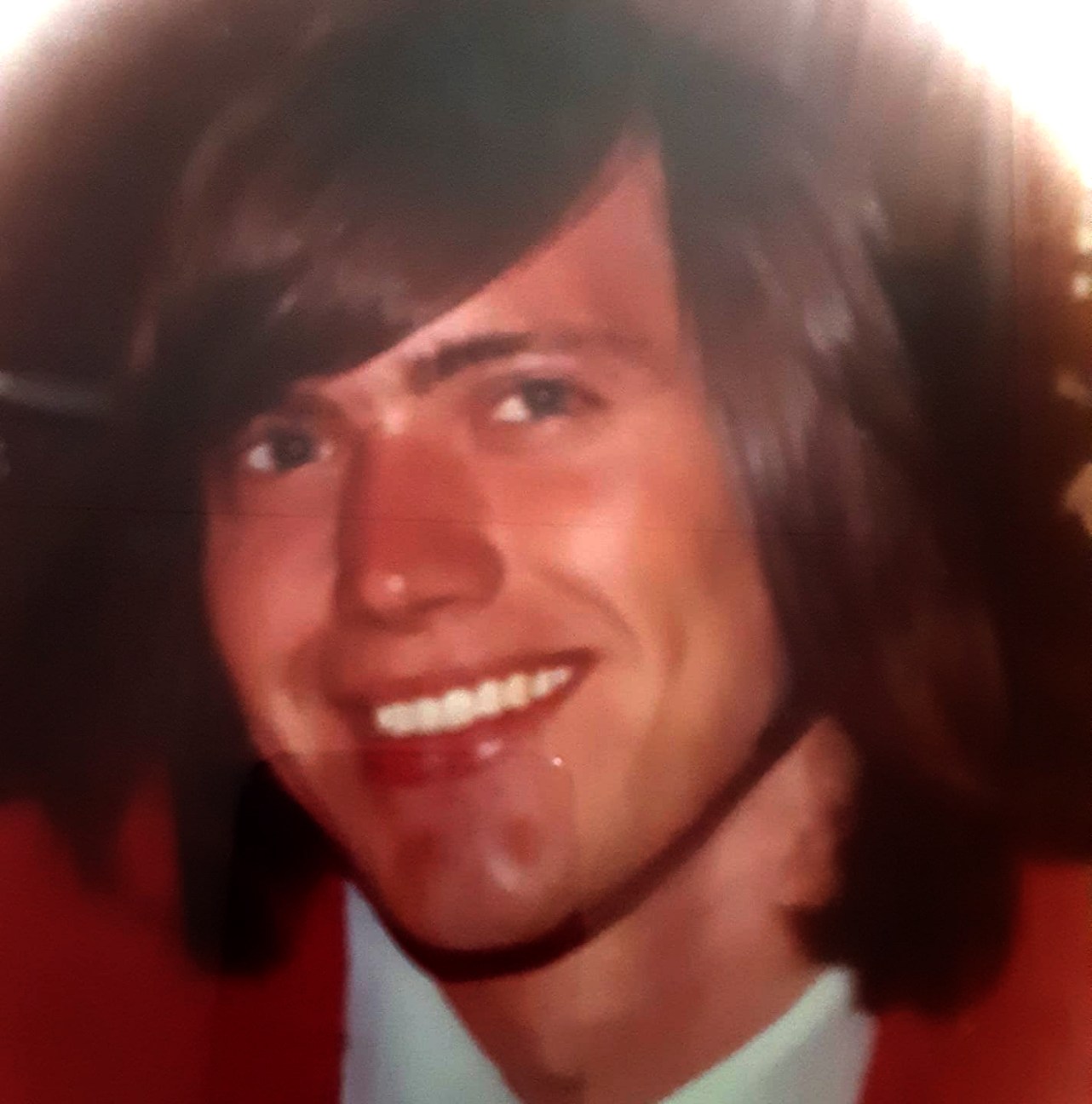Whether it be flood or fire, tremors or tornados, rural communities are no strangers to disasters and rebuilding after them. While this piece by Dee Davis might be discussing the 2022 floods in eastern Kentucky, the sense of loss and resilience are familiar to anyone out West who has had to rebuild after a tragedy.
As we consider weather-related events throughout the West this spring, we look back on this essay that Dee shared as part of his guest appearance at the 38th National Cowboy Poetry Gathering. Dee is the president of the Center for Rural Strategies and publisher of The Daily Yonder. For more rural reporting and small-town stories, visit dailyyonder.com.
Commentary: Things the Flood Takes
I clicked on the headline about a Perry County resident being the 39th death. I looked at the picture of a 71-year-old man trying to make myself focus. No, that’s not right.
When I was in school in Pittsburgh, I walked by the Giant Eagle Supermarket in Squirrel Hill. There was an ambulance and these medics out with paddles zapping an elderly man lying flat in the parking lot. This woman comes out of the store with her groceries, and I hear her panicky voice, “No that’s not him. Let me see. No, no, it’s not him. Yes, this is my car. No, that’s not him.” And then an EMT reaches down and picks up a clear pair of glasses lost in the fray and places them on his nose. Suddenly she wails inconsolably.
The 39th person dead in the East Kentucky flood of 2022 was Dennis Stacy, who moved across the street from me on Broadway in Hazard when we were both in second grade. We stayed pals a long time. We went through school together, and both of us were at University of Kentucky at the same time. After that we both came back home, which gave us a year or two to play poker and cut up.

When Dennis and I met, his dad, Gaylord, was an underground miner and the price of coal had crashed to about $2 a ton. Times were hard. He worked for Virginia Collins down the street. She was an untypical coal operator, married to a doctor. She was known for giving out apples and full-sized candy bars on Halloween and for keeping dozens of cats. The house stank of cat pee from the sidewalk.
Before the cats lived in her house, they all lived in the basement of her apartment building across the street from us. Dennis said Mrs. Collins cleaned it out real good before his family moved in, which as I recall was Dennis and his two sisters, his mom and dad in three rooms. They were not well-to-do. As my uncle Don would say, “too poor to pay attention.” But Dennis was confident, even brash, smart, and chatty. In second grade he told my mother the day Miss Pendleton paddled me three times. He was trying to get me in trouble. But my mom called Miss Pendleton, blessed her out, and she took a couple of weeks off from hitting me.
And where I was a town boy, Dennis was country to the core. The things they watched on TV were different from what we watched on the other side of the street. They watched hillbilly music: Flatt and Scruggs, the Cas Walker Show, and Mrs. Mull’s Singing Convention. My mom was a voice major. We sang show tunes as she played piano. “We know we belong to the land. And the land we belong to is grand!”
Dennis and I also had our differences about the Civil War. He was unrepentant secesh, and I was fighting to preserve our union. Every day, armies of little boys would re-enact blue-gray battles on the Lower Broadway Elementary playground. I would beseech Dennis to come over to the Yankees. I explained the Rebels were for slavery. I asked him, “Would you want your daddy to be a slave?”
I could tell that hurt him. He then asked me, what about my daddy, did I want him being a slave? That did not make sense. My father was selling tires and appliances downtown at the Firestone. I could imagine Gaylord a slave. He’d come home in work pants and take his shirt off. His face was coal smudged. My dad played golf till dark. We were management. We did not eat supper before 8.
A guy at the city hall next to my office—I only know him as Red—saved 12 people. He can’t swim, but he got a life jacket, borrowed a kayak, and went house to house. He lifted old people and a mother and child up out of the water and into the kayak.
And full disclosure, not that many kids sided with the North. We got down to only five Yankees in the school yard fight. We held our own against the student body as long as we had David Luke Hogg with us. He was very stout, and a head taller than anyone else at school. Then one day, someone gave him his own Confederate soldier cap, and he switched sides. The Union went into perpetual retreat until Mrs. Foley, the principal, put a stop to the war. And it should be noted that David Hogg’s big brother, Houston, turned out to be the Jackie Robinson of Southeastern Conference Football, one of the four players at the University of Kentucky to break the color line in the SEC. (Houston recovered the fumble to beat the Ole Miss Rebels when they were undefeated and fifth in the country. “Choke on that, Rebels.” Signed, management.)
Dennis and I both went to Hazard High, to the community college in town, and on to the University of Kentucky ourselves. I studied political theory and English poetry. He studied business and went home on weekends to mine coal.
The thing about the coal business is it is cyclical. In the ’70s when the Arab oil embargo hit, Gaylord hit the jackpot. Coal went from $10 to $70 a ton, and he owned his own company. They all got well. While he was in college, Dennis drove a dozer and ran an end loader for his dad. He made more money on the weekends than most grownups made in a week, maybe two. Correspondingly Dennis showed up in fast cars and with pretty girlfriends. I would give him guff about being a rapacious stripminer, and he would give me crap about being a professional do-gooder. But back home we would hang out, play poker at least once a week, have some cocktails. He was good at cards and chess. And he was funny, though not as funny as me.
Gaylord and my dad also ended up in the same poker game at the country club. My dad had a furniture store and Gaylord was a millionaire, rich as Croesus by hillbilly standards. They probably never even saw each other to speak when we lived across the street, but later they became fast pals. Gaylord would tell my dad he wanted to trade his screen door for an overcoat in the fall, then he’d tell him he wanted to trade the overcoat back for that screen door when it turned spring. If Gaylord had a snoot full, my dad would sometimes run him home from the card game, and Dad would be pissed at Dennis or his brother in law for not fetching their old man. I recall him saying, “Gaylord’s a credit to all of them. If it wasn’t for him, those boys would not have a pot to piss in.”
But Dennis did all right, up to a point. He got into the restaurant business with my friends, bought a racehorse, owned a coal company. Still, none of it was meant to last. We lost touch. I heard he had some setbacks. I gather he was living in a trailer between Dwarf and Fisty when the rain hit. The flood was violent. They found him eight miles downstream. The paper said under a log house.
Small wonder that more did not perish. First responders rescued 1,400; National Guard helicopters hoisted 650 on dropped cables. So many neighbors waded through swift water to pull less able people to safety. A guy at the city hall next to my office — I only know him as Red — saved 12 people. He can’t swim, but he got a life jacket, borrowed a kayak, and went house to house. He lifted old people and a mother and child up out of the water and into the kayak.
In the flood of 1957, we lost everything. I was in kindergarten. The water came up to the ceiling of the downstairs we rented. After that we lived from one family’s couch to the next for a time, until my grandparents came from Cave City to collect my brother and me. We were not rich, but were never poor, never without prospects, never lived in a cat pen. The choices unfolded in front us. You take the blankets from the Red Cross, sandwiches from the Salvation Army, and start over.

This year’s flood was tough in a lot of these little towns. Here in Whitesburg, it rose 6 feet beyond the ’57 flood when the record water levels had been set. They say it is the 500-year flood. Let’s hope. My house on the hillside was spared, but so many people lost all they owned. Sopping wet couches, bent up appliances, and battered knickknack shelves are still piled on the sidewalks. The flood mud is so toxic with septic drainage and mine runoff now that you can’t dig a potato that was under the water or eat an apple from a tree that withstood it. And what’s true here is the same for 50 other communities downstream. The choice to build back seems harder now, but even if that horse goes off at 7 to 2, it is still the best bet on the tote board.
Things get covered up in the flood. And if you see them again, they’ve changed. Maybe they are mud caked and putrid smelling, or maybe they are washed eight miles from where they are supposed to be, but they are different. Forever. And as witnesses we are changed too. We refocus as the water recedes. We see the before and the after. And we figure out what of it we take from here.
Dee Davis is publisher of the Daily Yonder and president of the Center for Rural Strategies.
This article first appeared on The Daily Yonder and is republished here under a Creative Commons license.![]()




